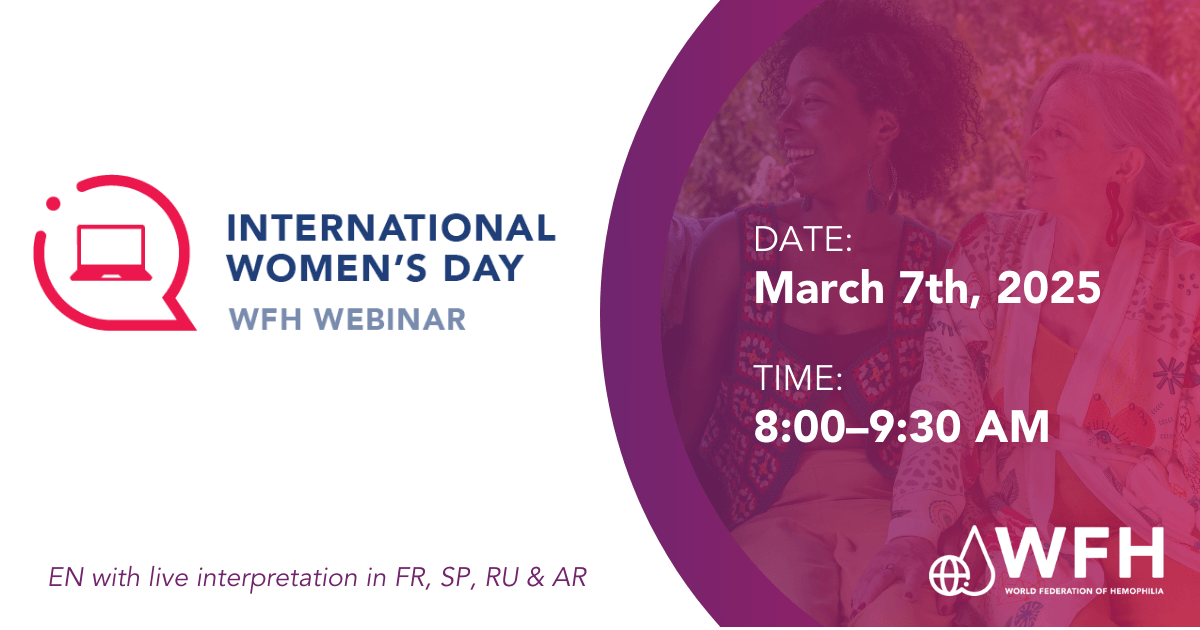
International Women’s Day Webinar | March 7, 2025
Listen to this 90-minute webinar presented on March 7, 2025, to learn about women and girls with bleeding disorders (WGBD).
Year: 2023
Language: English
Author(s): World Federation of Hemophilia
Format: Congress recordings

SHARE THIS RESOURCE
The chosen theme for this edition of the global summit centered on Equity and Access to Care for women and girls with bleeding disorders. Healthcare providers, people living with bleeding disorders, family members, national member organization leaders, and other stakeholders came together to discuss several topics including, the importance of data and the use of guidelines for advocacy purposes, comprehensive care for WGBD, the role of patient organizations and male figures within the family, amongst others.
The WFH does not engage in the practice of medicine and under no circumstances recommends particular treatment for specific individuals. For diagnosis or consultation on a specific medical problem, the WFH recommends that you contact your physician or local treatment centre. Before administering any products, the WFH urges patients to check dosages with a physician or hemophilia centre staff, and to consult the pharmaceutical company’s printed instructions.
The WFH does not promote any particular pharmaceutical product and any mention of any commercial brand in this presentation is strictly for educational purposes.
In this educational session, Anupama Pattiyeri (India), Johanne Ouedraogo (Canada), and Salome Mekhuzla (Canada) present on the role and efforts of NMOs in advocating for equity and access for women and girls with bleeding disorders. Testimonials from the Australian and Colombian NMOs were presented by their representatives Suzanne O’Callaghan (Australia) and Alexandra Robledo (Colombia).
In this educational session, Lauren Phillips (New Zealand), Robert Sidonio (United States), Nathan Connell (United States), and Sara Ford (Canada) present on the importance of guidelines and their impact on equity and access to care, the use of guidelines as an advocacy tool for WGBD, and the application of guidelines in clinical practice.
In this panel discussion, Patrick James Lynch (United States), Masood Malik (Pakistan), Gernot Radlingmayr (Austria), and Miguel Escobar (United States) discuss the importance of the role men can play to support and advocate for women and girls with bleeding disorders, from the perspectives of a father, a NMO leader, a partner, and a Hematologist.
In this educational session, Roshni Kulkarni (United States), Jill Johnsen (United States), and Shannon Meeks (United States) present on the impact of bleeding disorders in pregnant women and fetal health, and the importance of multidisciplinary care when promoting optimal maternal and fetal outcomes.
In this panel discussion, Marlène Beijlevelt (Netherlands) present a concrete case-study of a woman with a bleeding disorder successfully managed by a multidisciplinary team. The case-study is followed by a discussion between Rana Saifi (Canada), Marlène Beijlevelt (Netherlands), Anne-Louise Cruickshank (South Africa), Hilary Critchley (United Kingdom), Richa Mohan (India), and Megan Brown (United States) on the importance of coordination and collaboration among members of the multidisciplinary team in promoting optimal outcomes for women and girls with bleeding disorders.
In this educational session, Tahira Zafar (Pakistan), Roshni Kulkarni (United States), Angela Weyand (United States), and Ellia Tootoonchian (Canada) present on the challenges of including women and girls with bleeding disorders in research, the situation in developing countries, and the strategies to be gender sensitive in clinical trials.

Listen to this 90-minute webinar presented on March 7, 2025, to learn about women and girls with bleeding disorders (WGBD).
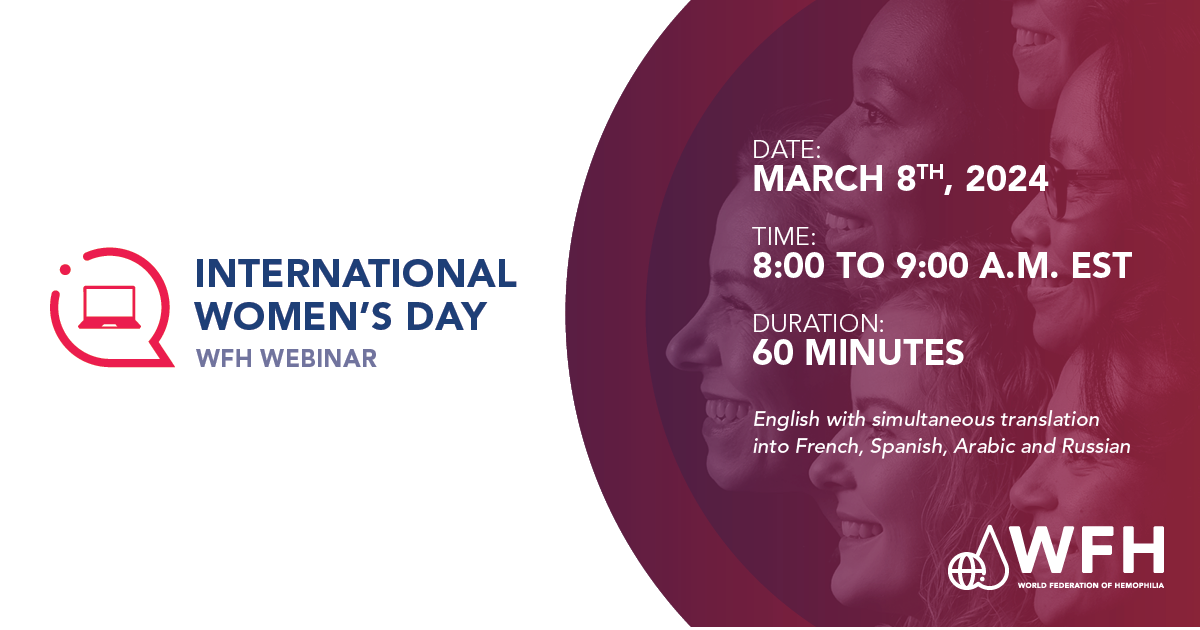
In celebration of International Women’s Day, the WFH hosted an educational webinar. The event centered around reproductive tract bleeding, pregnancy,
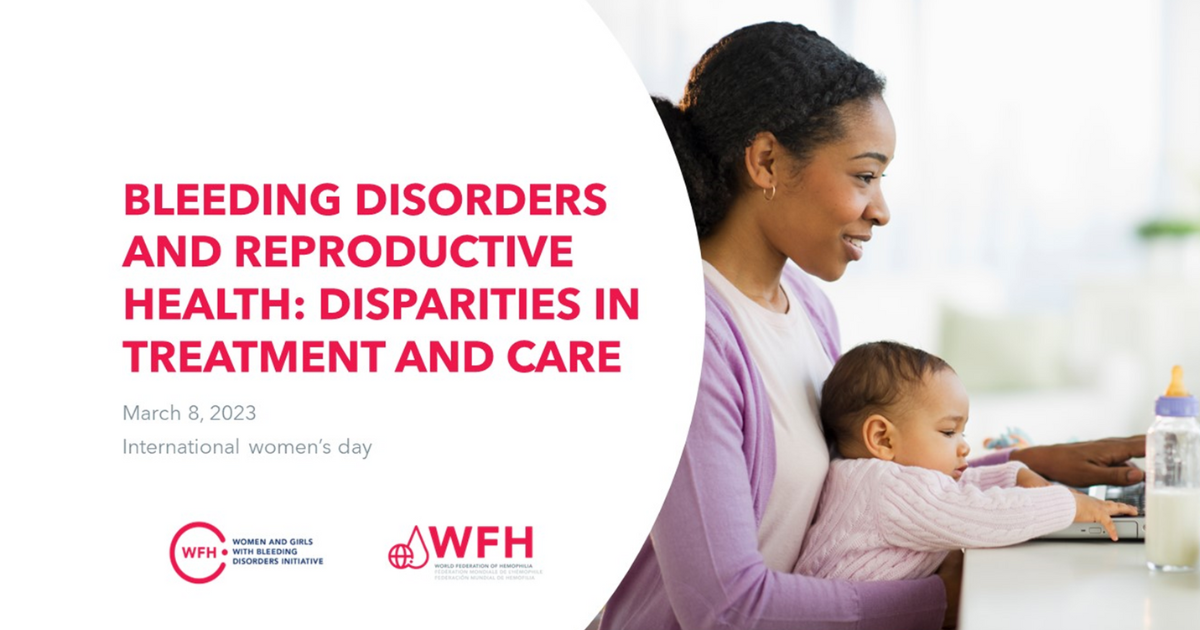
This 60-minute webinar explores the theme of “Women and Girls with Bleeding Disorders and Reproductive Health: Disparities in Treatment and
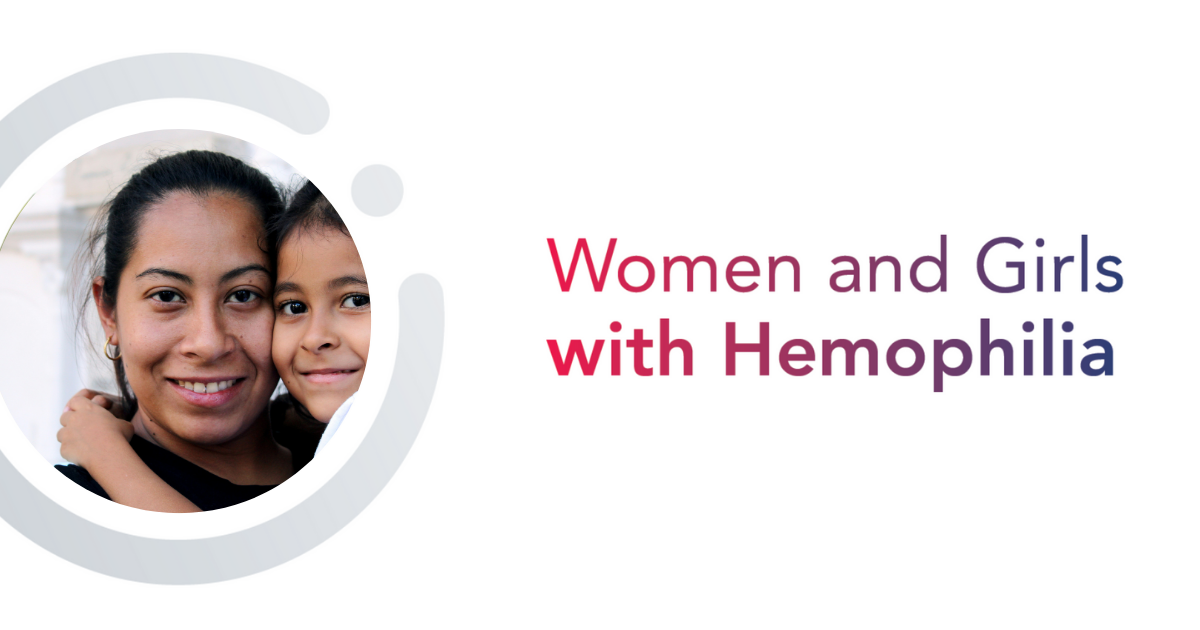
The previous edition is also available in: Japanese The previous edition of this resource has also been translated into the
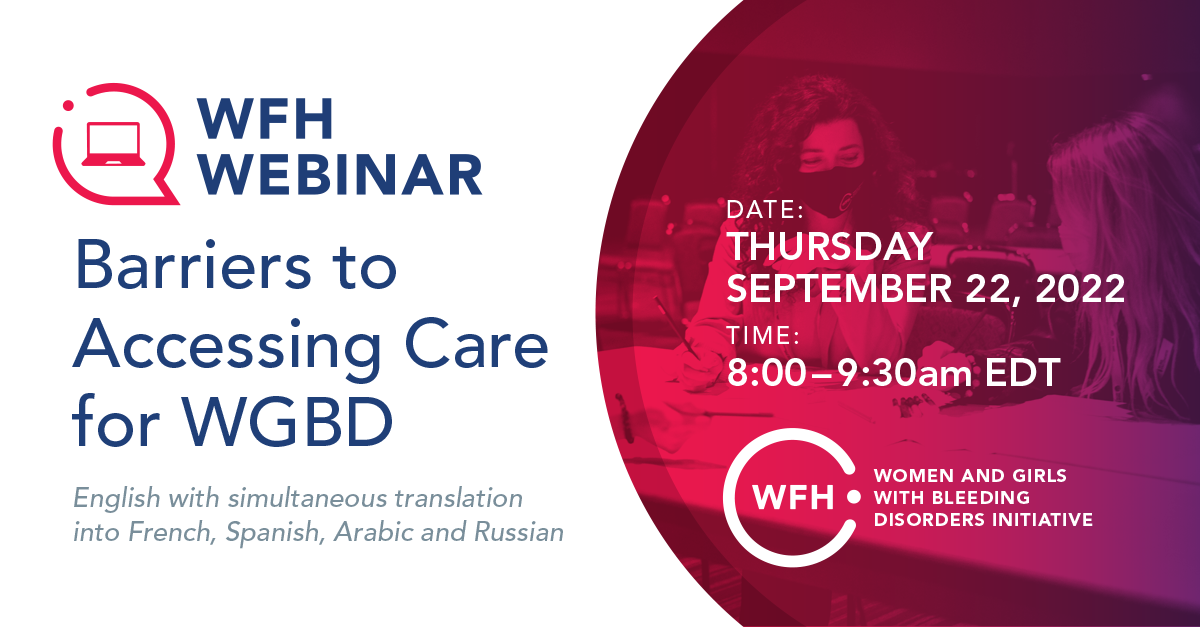
Listen to this 90-minute webinar presented on September 22, 2022, to learn about how to address challenges faced by Women
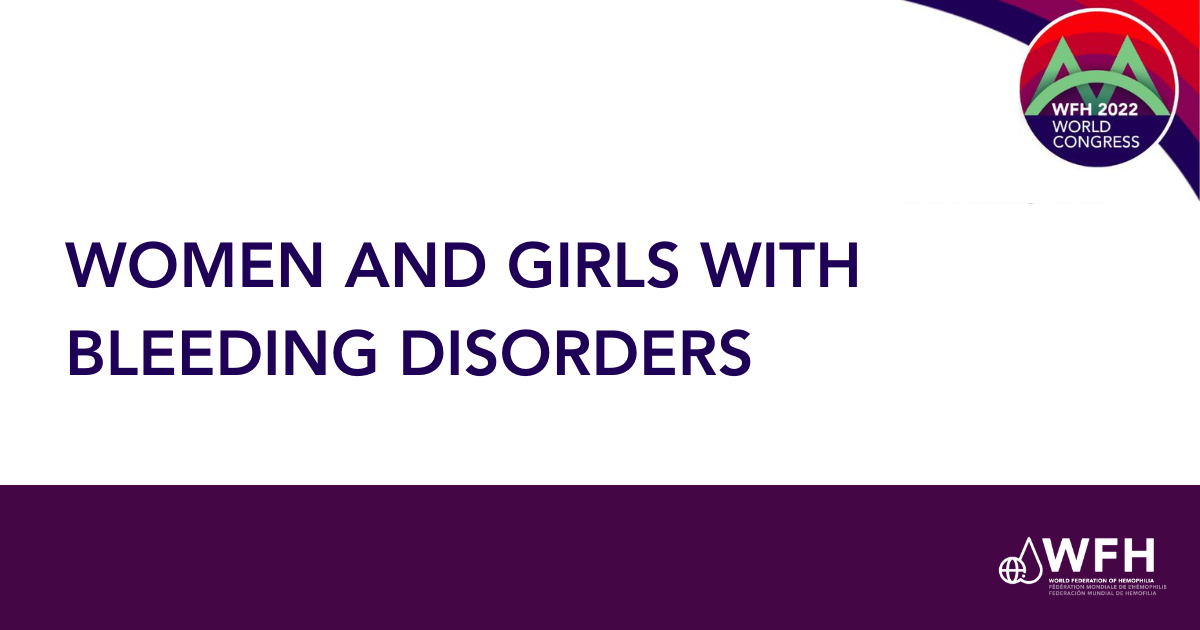
In these sessions from the WFH 2022 World Congress, listen to Roseline d’Oiron, Angela Weyand, Robert Sidonio, Michelle Sholzberg, Baiba